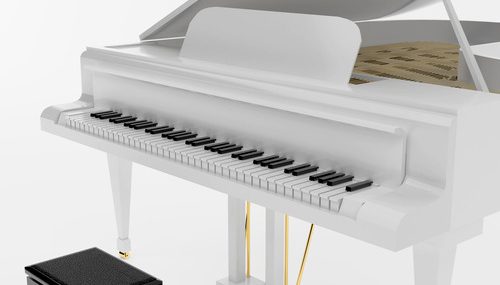When you purchased your last car, the value dropped the moment you drove off the lot. You drive it. You put miles on it. It gets a few dings. Maybe you repair it after an accident. It depreciates every single day.
Most things in life work that way. You buy it. You use it. And then you dispose of it, depending on what it is. If you’re lucky, you can sell it in a second hand store, on eBay, or possibly in a garage sale.
A piano works is no exception.
You buy it and it begins depreciating from the moment it arrives at your home.
How it goes down in value depends on what you’re buying, the manufacturer, and the model.
Dealers sell new pianos straight from the manufacturer. As a part of a capitalistic society, new always costs the most. The moment someone else takes ownership, the price begins to go down.
And like other high-valued assets, the biggest drop comes within the first two to three years of life. That’s when the biggest depreciation exists. You’ll find pianos often drop as much as 20 percent the first year, usually settling into 5 percent for years two or three.
Of course, this can be altered in many ways. What make and model did you purchase? How well do you care for your piano? Do you tune it regularly? Does it have appropriate levels of humidity?
Not every piano depreciates in value over time. In some cases, a piano can appreciate and be worth more than you paid for it. Some of the bigger brands like Steinway, Bosendorfer, and Yamaha are always in demand.
Their quality is so good, they tend to hold their value better than others.
You might also find some come in limited editions, meaning they were produced with special qualities in mind. Especially in the professional arena, people often develop a liking for one particular brand and sound. If your piano meets certain qualifications, it can rise in value instead of going down.
If you use your piano in a commercial application – a school or a church, for example – it’s often important to understand your options and select based on personal needs. Do you regularly switch up your pianos, purchase on a regular cycle? Depreciation may be just a part of doing business. If you’re looking for long term, maybe only a higher quality will do.
Whatever your needs, we’re here to help. Just ask.


